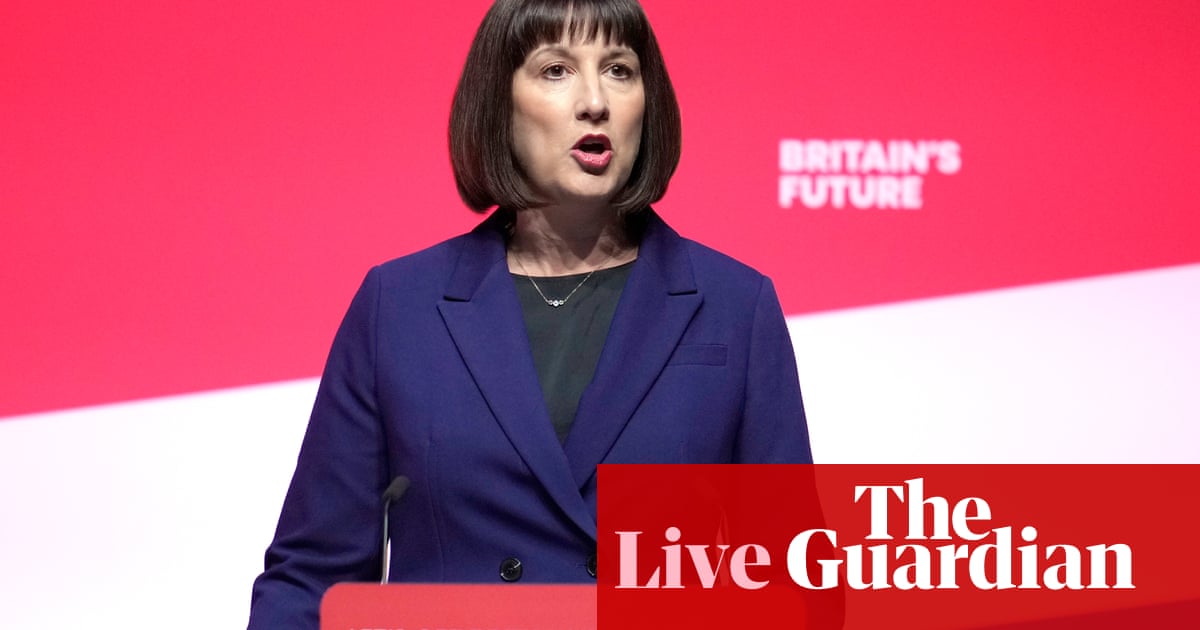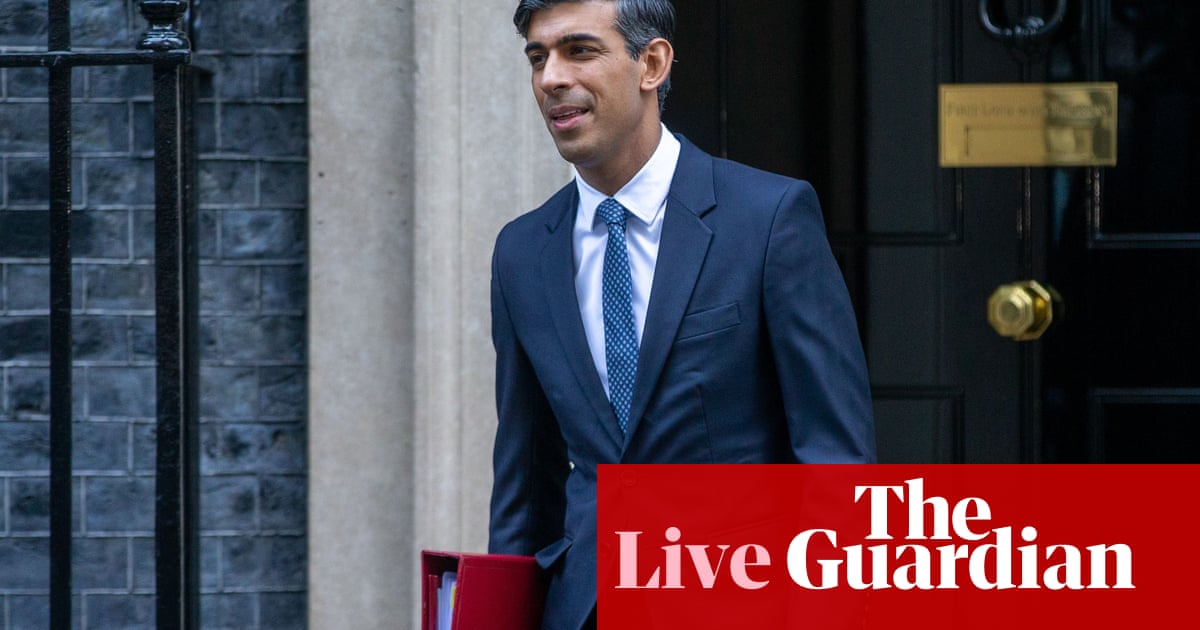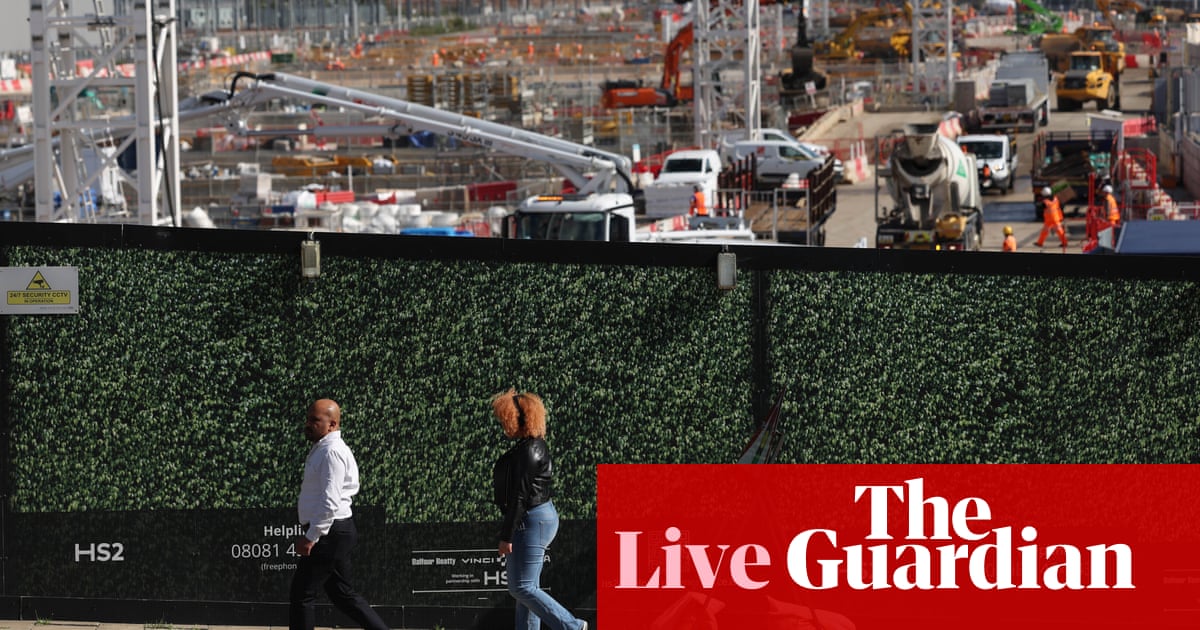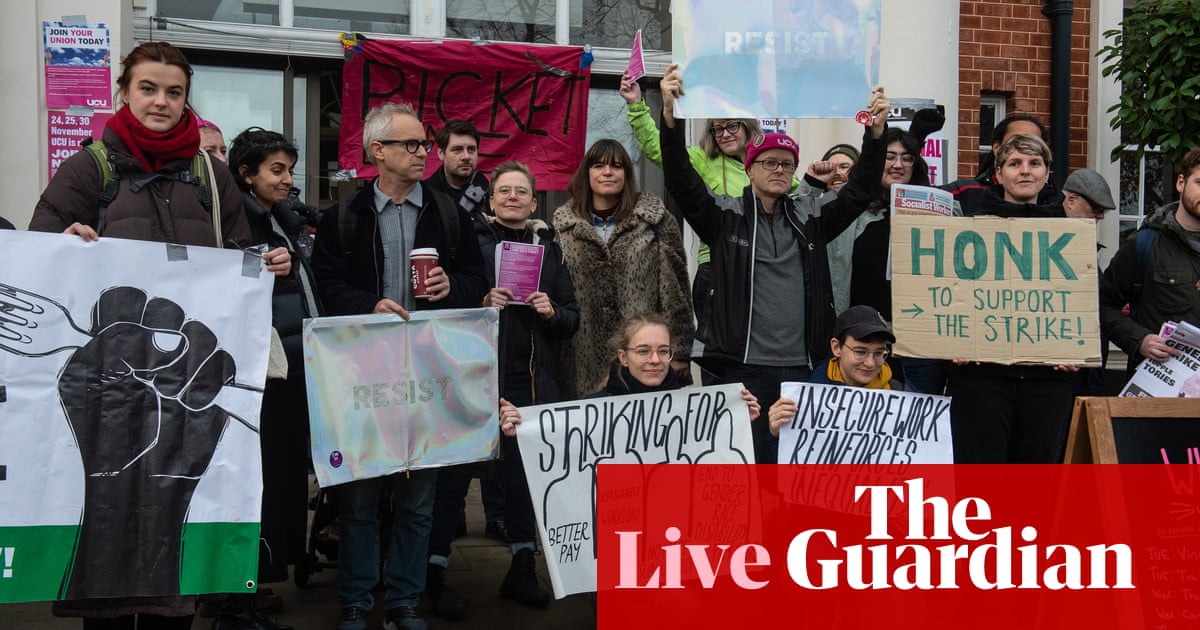
Closing summary
Time to wrap up.
MPs have heard that the UK economy risks a ‘pandemic hangover’, even once Covid-19 vaccines are deployed.
Bank of England policymaker Michael Saunders told the Treasury Committee that Britain faces the risk of a significant rise in unemployment, higher corporate debt, and depleted household savings, particularly among poorer families.
Plus, firms will be more cautious after suffering this year’s economic slump, Saunders warned, in a reminder not to get carried away by vaccine optimism.
Obviously it’s better to have a vaccine than not, but those are hangovers from the pandemic even as and when there is an effective vaccine, which I suspect will weigh on the economy for some time.
Bank of England governor Andrew Bailey said the recent vaccine trial news was “excellent”
Speaking personally, it felt like the first time in eight or nine months that there is some lights coming at the end of the tunnel.
I have to say I think it’s terrific news, and I take my hat off to all the people involved in doing this work on these vaccines.
Bailey told MPs that a no-deal Brexit would have deeper long-term consequences for the economy than Covid-19, adding that a deal was in the UK and the EU’s best interests.
Bailey also said the Bank is investigating how its decision to conduct another £150bn of QE was reported in advance by The Sun.
The BoE also showed it has little time for MMT, with chief economist Andy Haldane dismissing it as “not modern...not monetary... and not really theory.”
The latest healthcheck on the UK economy is less terrific, showing that the private sector is shrinking this month amid the lockdown. Services sector firms reported a drop in activity, indicating that the UK economy may be shrinking again this quarter.
But, business confidence has risen following recent vaccine trial results.
Business activity in the eurozone also fell, driven by a sharp fall in France.
But America’s economy seems to be accelerating, despite the surge in Covid-19 cases, with the biggest PMI increase in five years.
The UK stock market has dipped, despite AstraZeneca becoming the third pharmaceuticals firm to report that its Covid-19 vaccine was effective. Trials shows it was 70% efficacy, up to 90% if a smaller dose is given first.
The oil price rallied by 2%, though, pushing Brent crude to its highest since September.
Here are some more of today’s stories:
Goodnight. GW
Speaking of the furlough scheme....chancellor Rishi Sunak has been criticised by the Treasury committee for not helping thousands of small businesses in England on the brink of collapse.
These firms, the MPs warn, would have benefited from financial help in Scotland, Wales and Northern Ireland, but are falling through the gaps in Sunak’s plans.
The Bank of England also told the Treasury Committee that it is investigating how its decision to expand its QE programme by £150bn was reported hours earlier by The Sun newspaper.
Mike Hill MP asked governor Andrew Bailey if he agrees that this “alleged leak” is the Bank’s worst leak in almost a quarter of a century of monetary policy independence, as Bloomberg described it.
Bailey replies that he takes this issue “extremely seriously”.
It is a very serious issue... and we have an investigation going on, to seek to get to the bottom of what happened.
You’re right to use the phrase ‘alleged”, Bailey adds.
There is an interpretation, he explains, that some people in the markets had shifted their forecasts, and were predicting a QE expansion due to the worsening Covid-19 situation. Plus, the Bank moved its statement from noon to 7am to avoid clashing with Rishi Sunak’s latest announcement that the furlough scheme is being extended, which may have also sparked speculation that the Bank had a newsworthy announcement of its own.
But Bailey doesn’t assume that:
“What we have to assume is that it was a leak and we therefore have to try to get to the bottom of it.”
In these extraordinary times, the Guardian’s editorial independence has never been more important. Because no one sets our agenda, or edits our editor, we can keep delivering quality, trustworthy, fact-checked journalism each and every day. Free from commercial or political influence, we can report fearlessly on world events and challenge those in power.
Your support protects the Guardian’s independence. We believe every one of us deserves equal access to accurate news and calm explanation. No matter how unpredictable the future feels, we will remain with you, delivering high quality news so we can all make critical decisions about our lives, health and security – based on fact, not fiction.
Support the Guardian from as little as $1 – and it only takes a minute. Thank you.
Bank of England dismisses MMT
Back at the Treasury Committee, the Bank of England has poured plenty of cold water on Modern Monetary Theory.
Steve Baker MP raises the issue by pointing out that the Bank is on the way to conducting £875bn of quantitative easing (expanding its balance sheet to buy UK government bonds).
This huge QE programme is stimulating ideas about how the monetary system should work, says Baker.
Q: As I understand it, the modern monetary theorists suggest the central bank should inject money and when inflation comes in it should be taxed away somewhere else. Why don’t we write off these bonds?
Governor Andrew Bailey says it would create a huge hole in the Bank’s balance sheet, and also questions whether life is as simple as MMT advocates suggest.
MPC member Silvana Tenreyro weighs in too, quoting economist Willem Buiter’s line that the good things in MMT are not new, and the new things are not so good.
She questions whether it’s possible to keep expanding demand until you hit your inflation target, and then tackle inflation in real time by raising taxes.
MMT is difficult to pin down, Tenreyro continues, as there’s a lot of talk but “no clear model with functions and implications”. But there is also helpful guidance about not withdrawing demand too early if you’ve not hit your inflation target.
Chief economist Andy Haldane is also dismissive, saying he has three problems with MMT:
One, it’s not modern, two it’s not monetary, and three it’s not really theory.
On the first point, he says it’s the “oldest trick in the book”.
We’ve seen that trick repeated many times through history and it typically hasn’t ended very well.
Secondly he argues that it’s really about fiscal policy (about relaxing the budget constraints of the government, to allow more spending to increase demand).
Thirdly it’s a trick that could only be pulled off once in a one-shot game. In a repeated game, you’d see the good being undone, Haldane claims.
Andrew Bailey also chips in again, saying the BoE could only do its QE programme because it is “a credibly independent central bank”.
He’s read The Deficit Myth (Stephanie Kelton’s highly successful book on MMT), and reckons she cannot believe in independent central banks, so MMT ‘falls apart’ on those grounds too, Bailey argues.
The early rally in European stock markets also faded, with the French CAC and German DAX both ending slightly lower.
The previous two Mondays have seen stock markets surge higher, but AstraZeneca hasn’t matched Pfizer or Moderna on that score.
Connor Campbell of SpreadEx explains that this is partly because the Oxford/AstraZeneca’s efficacy is lower (although up to 90% if a lower dose is given first).
The AstraZeneca/Oxford vaccine update failed to recreate the kinds of gains produced by the Pfizer and Moderna preparations.
Though up to 90% effective dependent on how it is administered, the main takeaway for investors was the headline that, on average, the vaccine has an efficacy rate of 70.4%.
If that news had been released before the Pfizer/BioNTech and Moderna statements, investors likely would’ve jumped for joy; in comparison to the 90% and 95% efficacy reported by those other trials, however, the Oxford vaccine can’t help but seem a tad disappointing.
FTSE 100 closes lower
Back in the City, the FTSE 100 has closed in the red, down 17 points or 0.3% at 6333 points.
Travel companies, oil firms and banks led the risers, with jet engine maker Rolls-Royce jumping 7.6% and airline group IAG up 5.4%. Hotel operator Whitbread gained 2.6%, while the pick-up in the oil price today lifted Royal Dutch Shell by over 4%.
On the smaller FTSE 250 index, holiday group TUI jumped 8% and budget airline easyjet gained 6.3%.
That all suggests that optimism about recovering from the pandemic has risen, following AstraZeneca’s vaccine results today.
But healthcare, consumer stocks and technology firms fell -- including AstraZeneca, which fell 3.8%.
Multinational stocks were also pulled back by the strengthening pound, which is up against the US dollar and the euro today.
David Madden of CMC Markets explains:
The FTSE 100 is underperforming versus its continental counterparts as the firmer pound has dented the market. In terms of index points, the biggest fallers on the FTSE are AstraZeneca, GlaxoSmithKline, British American Tobacco, Diageo, and Unilever – all of which earn a large portion of their total revenue from overseas, so the upward move in the pound has held back the stocks.
The FTSE 250 and eurozone equity markets have been lifted by the news that the possible Covid-19 vaccine being developed by AstraZeneca and Oxford University is 70% effective. On the face of it, the drugs from Pfizer-BioNTech and Moderna are far more effective, but that 70% reading is an average. One of the regimens was 90% effective and the other was 62% effective. Also, because it can be stored at -3 degrees, so it is far more practical from a transportation and production point of view.
Fellow MPC member Silvana Tenreyro adds that policymakers can reduce the scarring effects of the pandemic which Michael Saunders is worried about.
And with confidence in a vaccine, policymakers can act ‘more forcefully’, she adds.
The scarring effects are not written on stone. They can be affected by policy, and we should be acting to avoid them.
Most of the businesses who were viable before [the pandemic] should be viable post vaccine.
BoE"s Saunders: Worried about pandemic hangovers
Bank of England policymaker Michael Saunders has warned MPs that the UK economy risks scarring effects from the pandemic.
Saunders tells the Treasury committee that he is worried about “hangovers” from the pandemic, even if and when an effective vaccine is widely rolled out. He cites several areas of concern:
The labour market, where we have already seen a sharp drop in employment among 18 to 24 year olds. There is the prospect of a more significant rise in unemployment across the population in the spring, Saunders warns.
Second, the rise in corporate debt, which is now significantly higher than it was in previous years.
Thirdly, many households have seen their savings depleted, especially at the bottom end of the income scale.
Although the overall savings rate has done up, that’s mainly due to higher earners, Saunders explains. At the bottom end, many households have seen their incomes weaken and their savings fall, so will come out of the pandemic in worst financial shape.
Saunders, an external member of the Bank’s monetary policy committee, also warns about “scarring effects” on demand from risk aversion.
Before this year, the idea of the economy shrinking 20% in a quarter was unthinkable, he says.
But having suffered that plunge in April-June, firms will want greater balance sheet resilience, and be more cautious about risk-taking, investment and hiring.
Saunders warns:
Obviously it’s better to have a vaccine than not, but those are hangovers from the pandemic even as and when there is an effective vaccine, which I suspect will weigh on the economy for some time.
Q: Which companies are least prepared for the end of the Brexit transition?
Governor Andrew Bailey says that large firms feel more confident than smaller companies.
He also points to today’s PMI survey, saying it may show the first signs of stockpiling in case of Brexit disruption (manufacturing output rose this month, despite the lockdown).
Bailey also points out that a no-deal Brexit would cause more disruption, and is likely too mean less of a ‘spirit of goodwill’ to resolve problems.
Q: Do you agree with research showing that the long-term hit of a no-deal Brexit would be two to three times as large as Covid?
Andrew Bailey says yes, the long-term effects would be larger than the long-term effect of Covid.
Both are highly uncertain, but Bailey says he is at the more optimistic end when it comes to Covid.
And he adds that the economic models do show that the impact of a WTO-style no-deal trade agreement takes longer to work through.
That’s because it takes much longer for the real side of the economy to adjust to the change in the profile of trade, Bailey explains.
Q: It must be hard for you and the prime minister to sleep at night, given the risk of a damaging no-deal Brexit?
Bailey says he doesn’t have problems sleeping, but adds
It is in the best interest of both sides, the UK and EU, for there to be a trade agreement, with a strong element of goodwill around it around how it is implemented.
Q: Is there a danger that positive vaccine news will create complacency, and lead to a third wave of Covid infections in the first or second quarter of next year?
Haldane says there is a possibility of that risk coming to pass.
But if anything, his general view was that people were too pessimistic before the vaccine news.
“If anything, people were a little too fearful of the future, and that uncertainty was having quite a significant dampening and damaging effect on their willingness to spend, and to get out and about.
Haldane hopes that the vaccine news has helped offset some of that pessimism, pointing out that this morning’s PMI survey showed a rise in business confidence.
He still doesn’t want people taking any chances before vaccines are rolled out, though.
But vaccine progress offers an end to the threat of stop-start operations that is so damaging to businesses.
Bank of England governor: Excellent vaccine news
Q: Is the progress towards vaccines that are going to be distributed and hopefully work broadly in line with your forecasts, or are you bouncier now that we have data from the likes of AstraZeneca?
Bouncy is pushing it, Haldane replies. But yes, the latest news is to the positive side of the Bank’s forecasts, for a gradual phasing in of improved treatments from the middle of next year.
He tells MPs:
“I’d say on balance that news has been to the positive side of our assumptions in November,”
Q: To what extent is the recent vaccine news transformational, or are you quite cautious?
Governor Andrew Bailey says the recent vaccine news is ‘terrific’
It’s excellent news. Speaking personally, it felt like the first time in eight or nine months that there is some lights coming at the end of the tunnel.
I have to say I think it’s terrific news, and I take my hat off to all the people involved in doing this work on these vaccines.
Q: And Dolly Parton, who has been funding some it...
Well, good for Dolly Parton as well, Bailey smiles.
He then explains that the Bank had a ‘broad expectation’ that there would be vaccine news, at least by February’s inflation report (November’s report was released just before Pfizer’s results).
There’s still the challenges of transporting and distributing vaccines, Bailey adds, but we can be reasonably optimistic that this is being addressed.
The important point is that there is currently “unprecedentedly high level of uncertainty” in the Bank’s forecasts. Vaccine progress should start to reduce that uncertainty over time, which is “entirely helpful to policymaking”.












